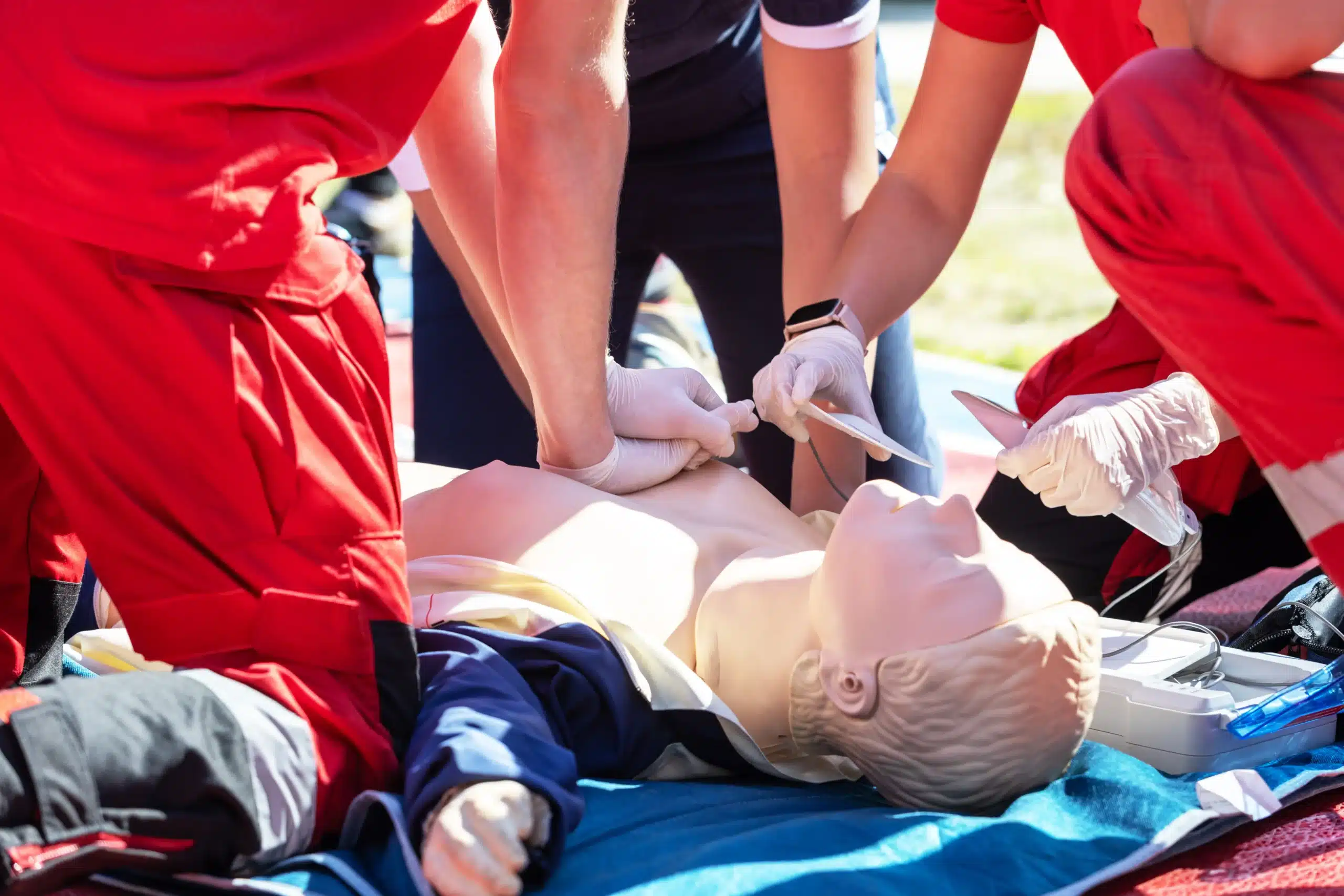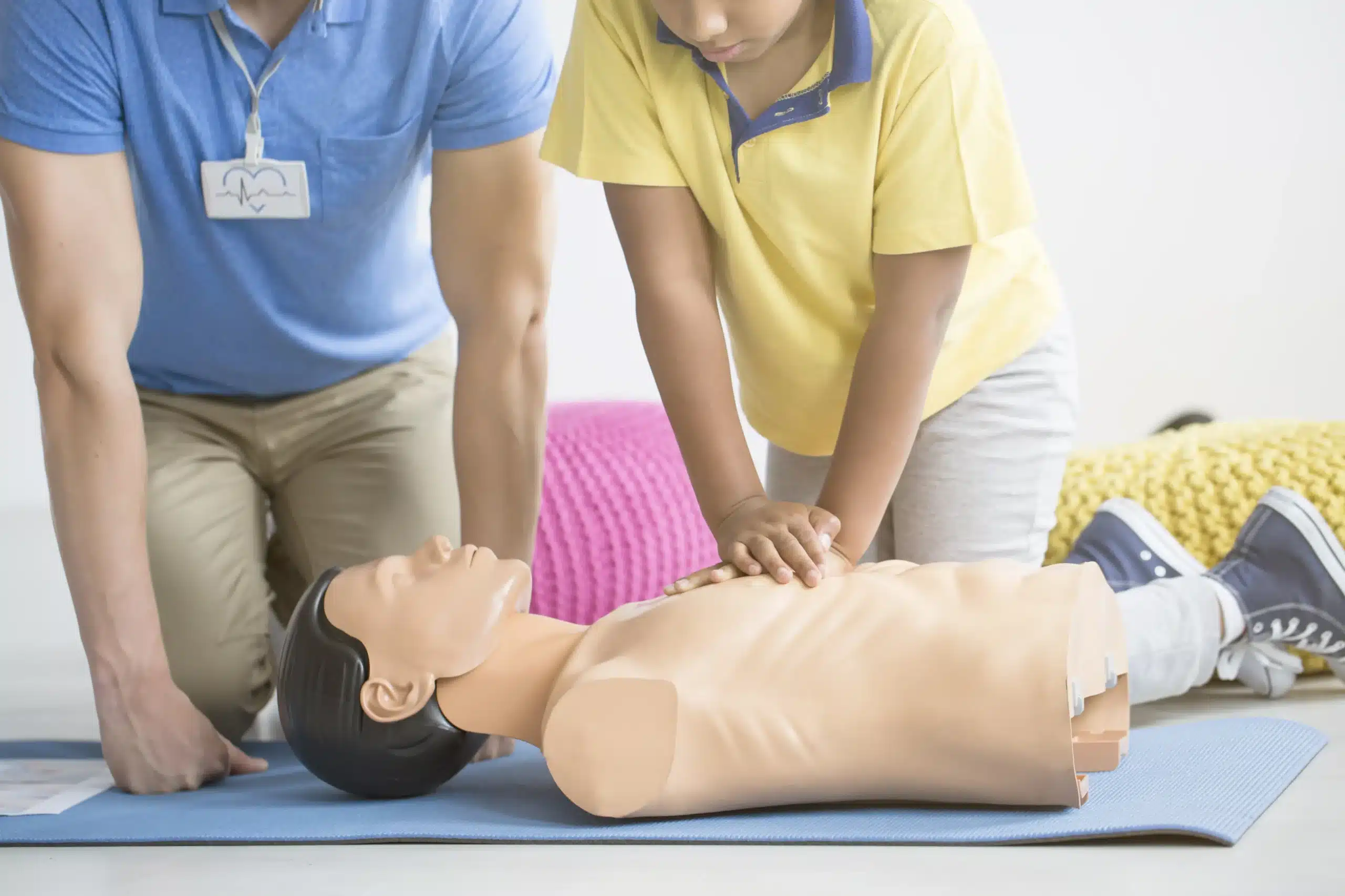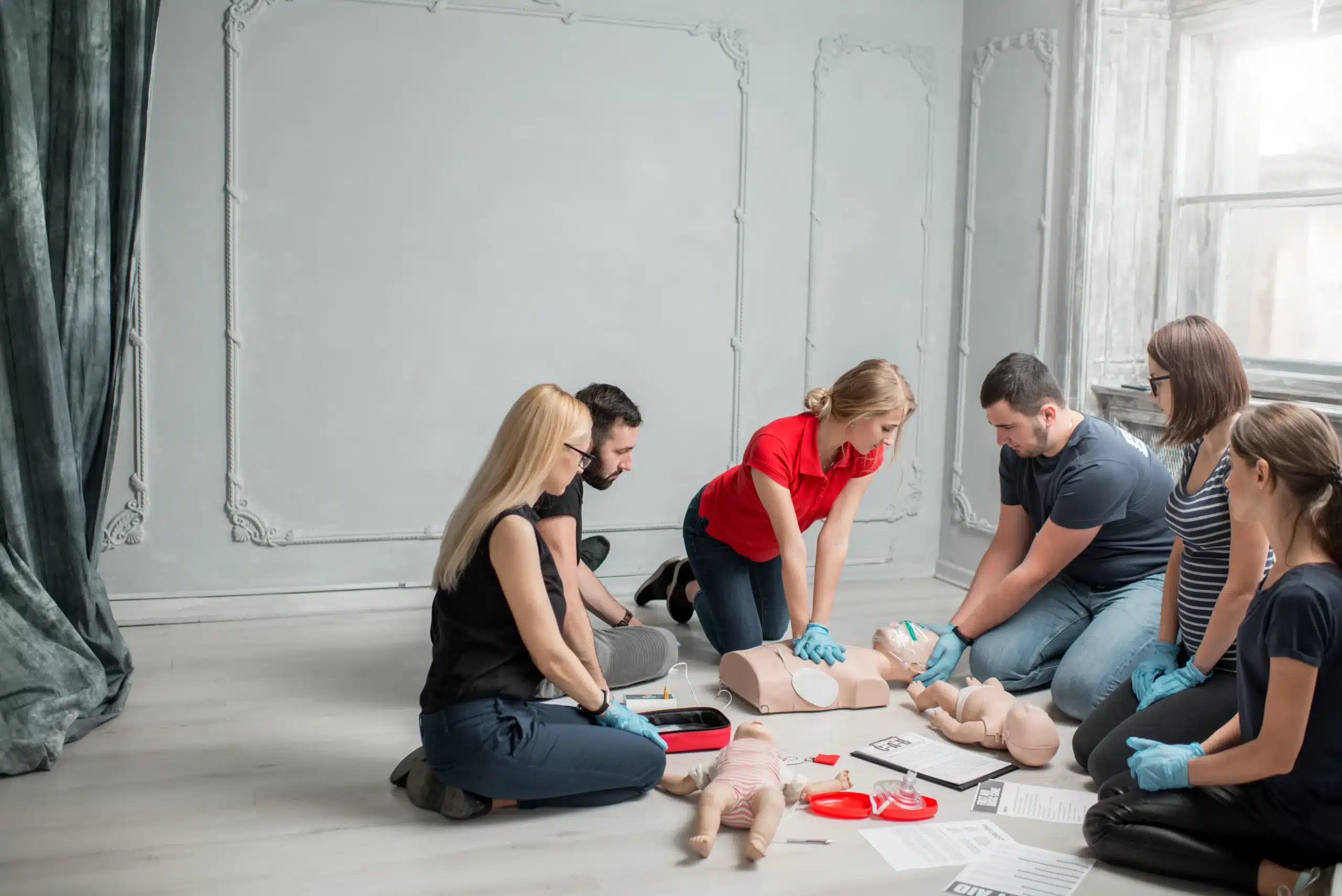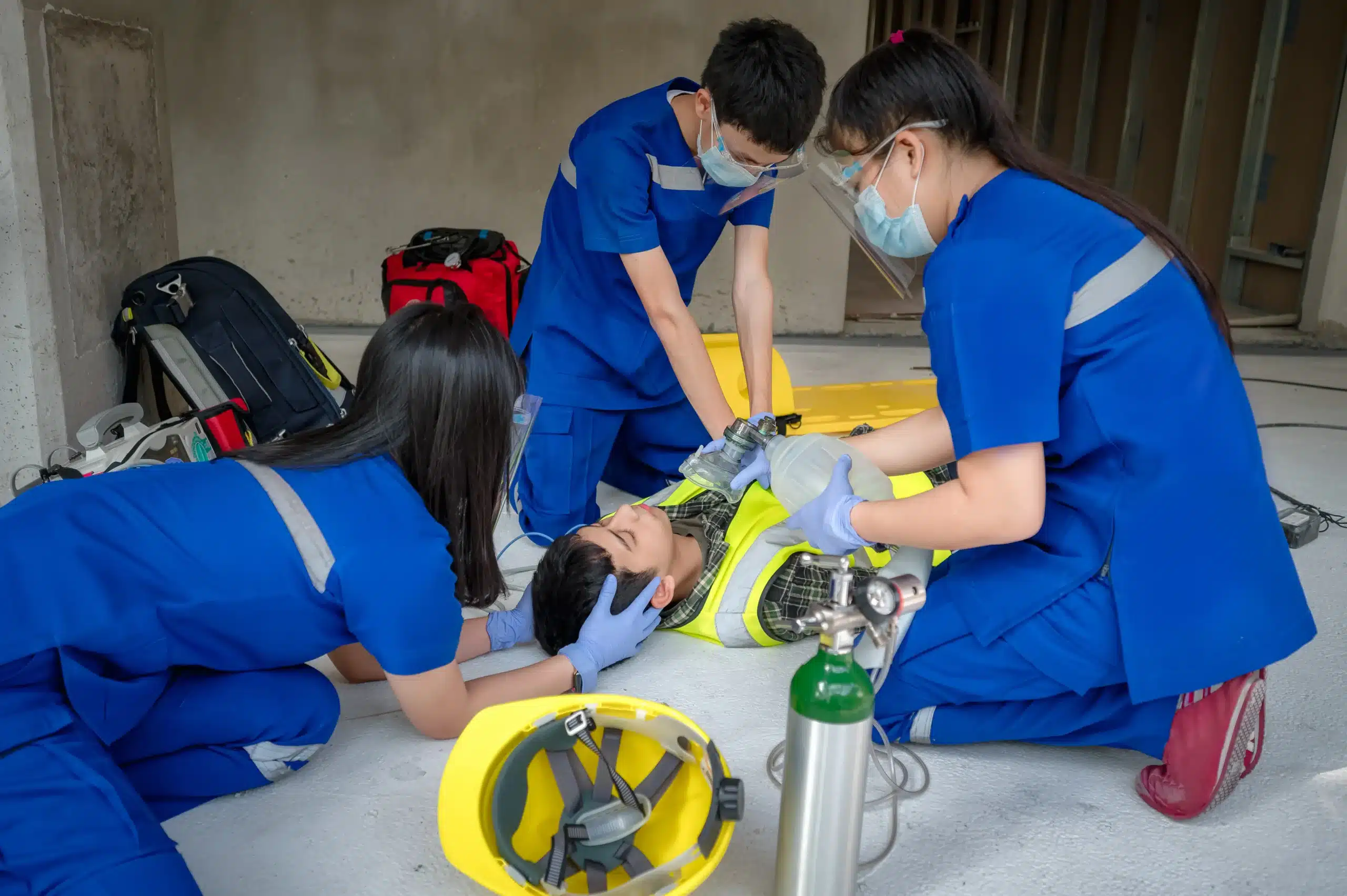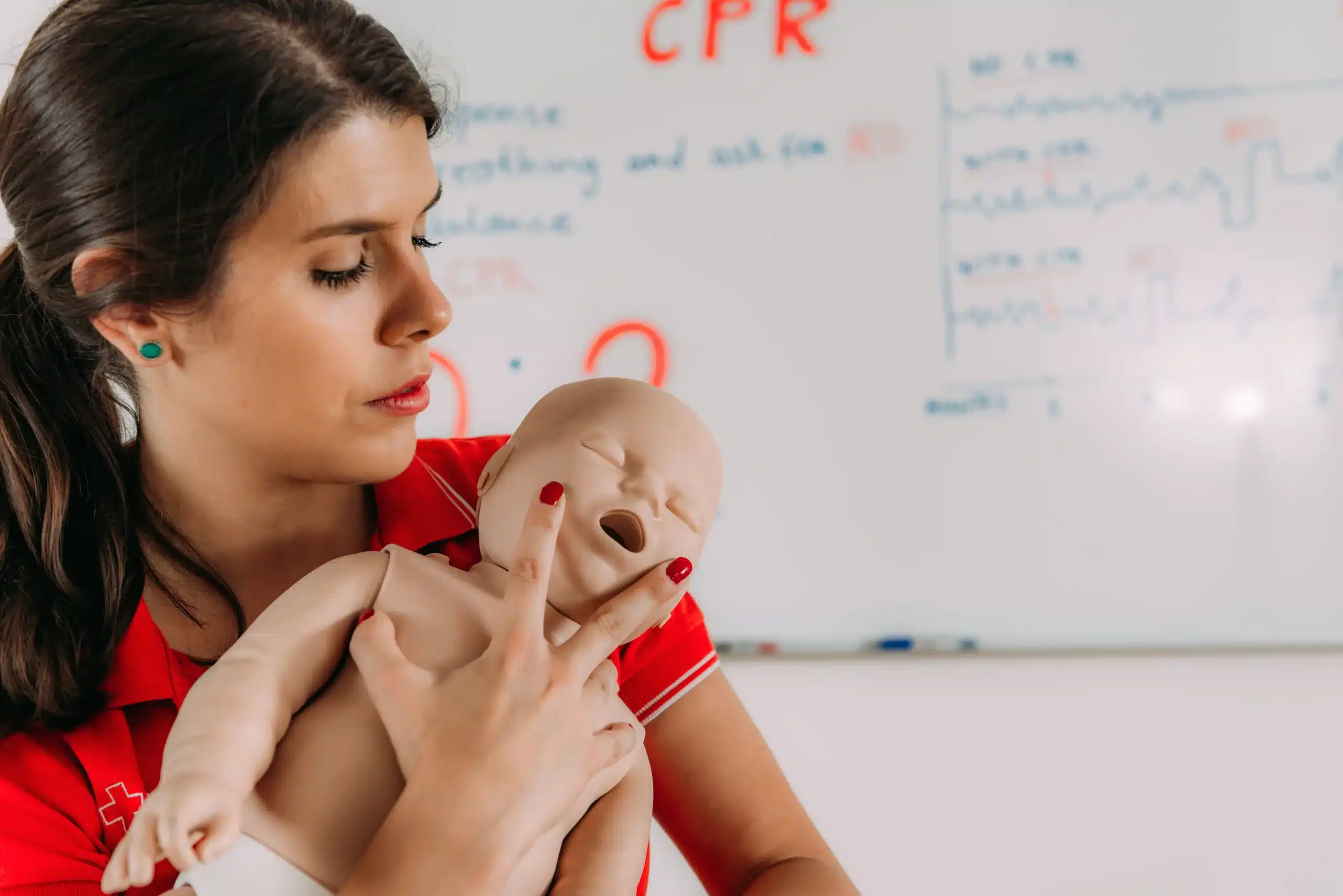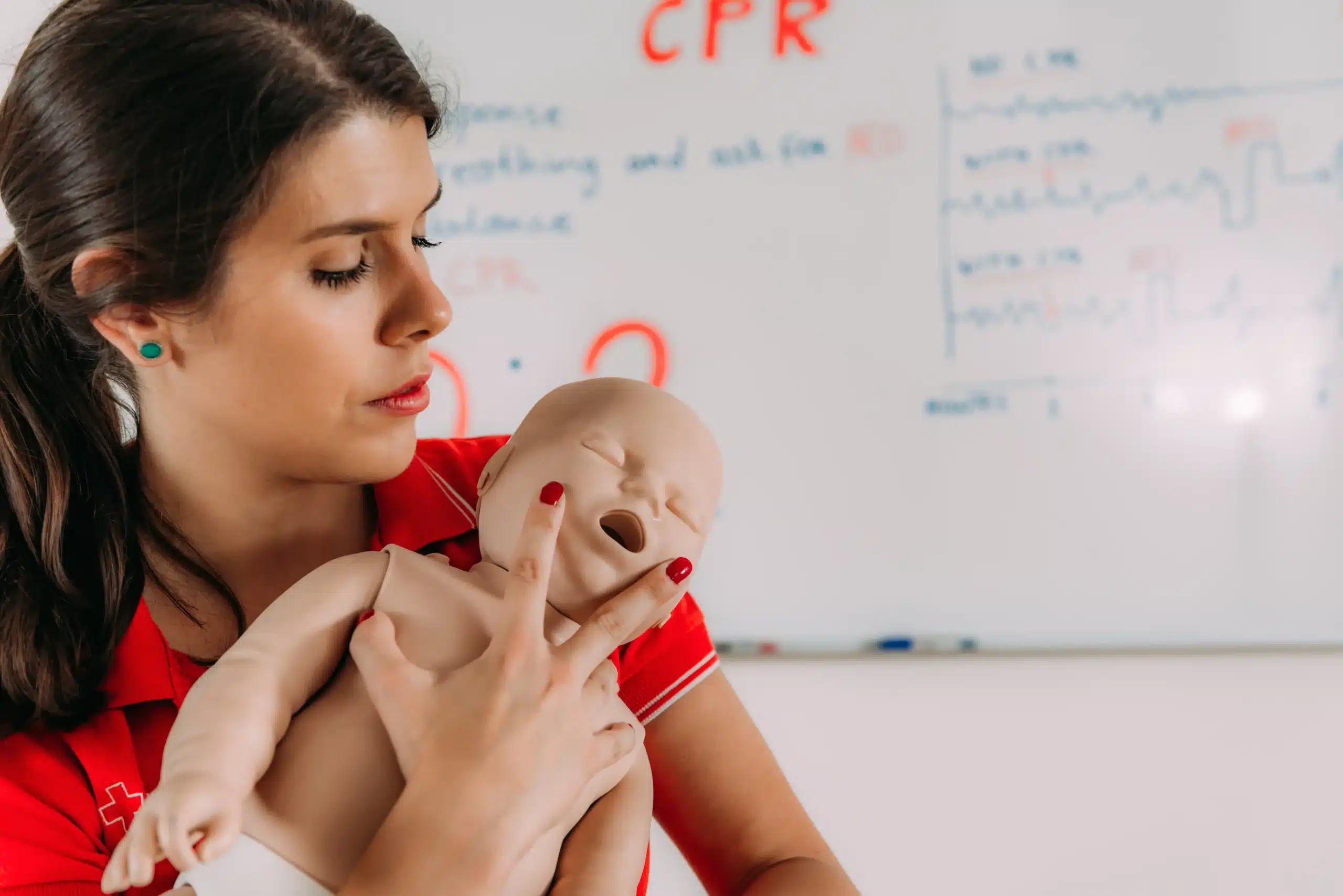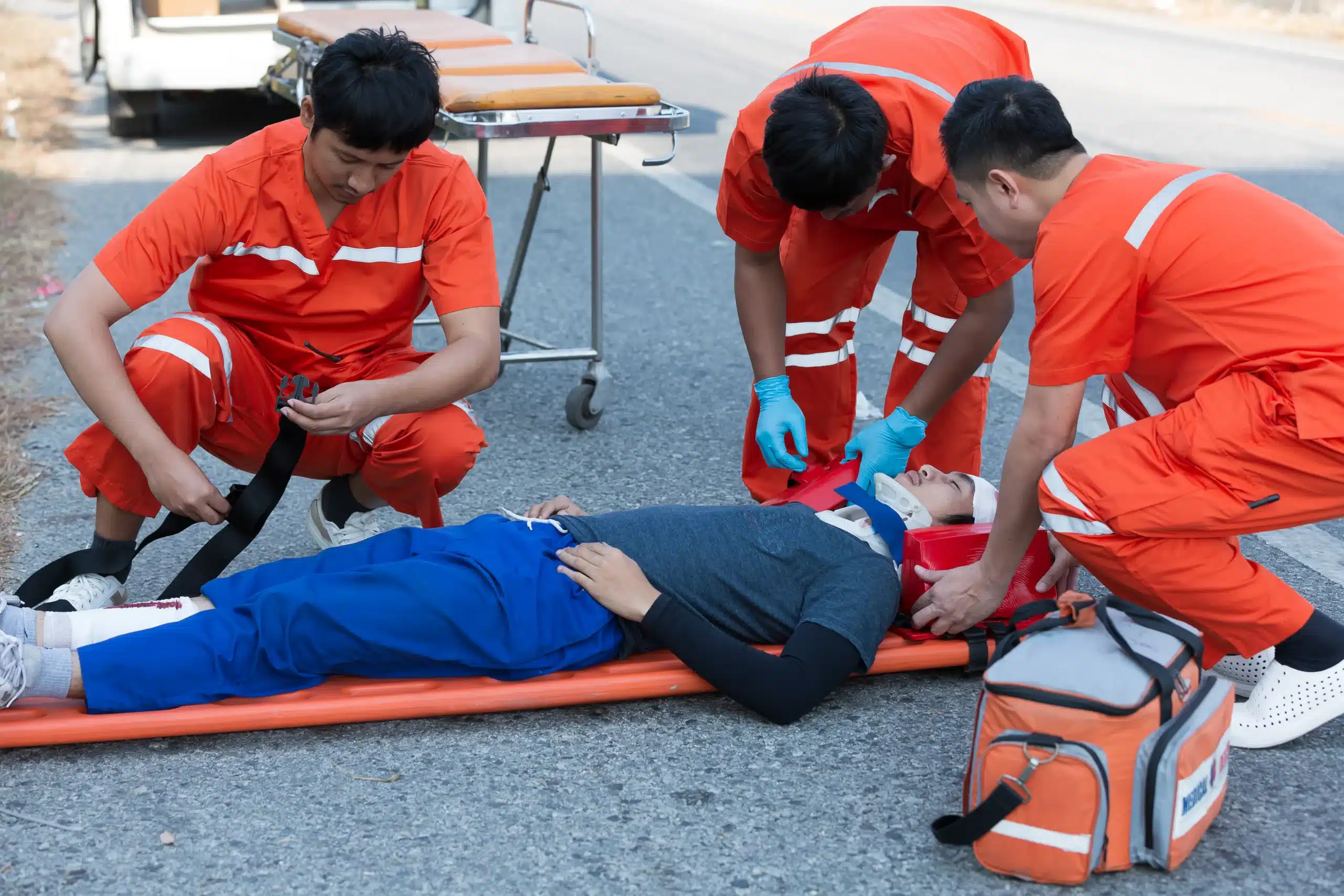Juggling work, family, and everything in between can make staying current with certifications feel like a monumental task. But when it comes to life-saving skills like Basic Life Support (BLS), making time for recertification is crucial. If you’re searching for “BLS recertification near me,” you’re looking for a convenient and efficient way to maintain your skills. This guide is designed to simplify the process, providing clear, actionable steps to find the right recertification course for your busy lifestyle. We’ll explore various learning options, discuss costs and time commitments, and address common questions to make your recertification journey as smooth as possible.
Key Takeaways
- Stay current with life-saving skills: Regularly renewing your BLS certification keeps your skills sharp, ensuring you’re prepared for medical emergencies. It’s crucial for healthcare professionals, first responders, and anyone who wants to be ready to help.
- Find a course that fits your life: BLS recertification is convenient and affordable, with various learning formats and schedules available. Explore in-person classes, online options, or blended learning to find what works best for you.
- Recertification is simple and manageable: The process is straightforward, involving a few key steps: confirm your expiration date, choose a course, complete the training, and pass the exam. Resources and providers are available to guide you through each step.
What is BLS Recertification?
Basic Life Support (BLS) certification is a vital credential for healthcare professionals and anyone who might respond to a medical emergency. It teaches essential life-saving skills, but it’s not a one-and-done deal. That’s where BLS recertification comes in. It’s how you renew your BLS skills and knowledge so you can continue to provide effective care in emergencies. Think of it as a tune-up for your life-saving abilities. Just like any important skill, regular practice and updated training are key to staying sharp and confident.
Definition and Importance
BLS certification equips you with the skills to handle medical emergencies. You’ll learn CPR, how to use an AED, airway management techniques, and how to communicate effectively in a team setting. These skills are crucial for responding to cardiac arrest, respiratory distress, and other life-threatening situations. Having a current BLS certification demonstrates your commitment to providing high-quality care and ensures you’re prepared to act quickly and confidently when every second counts. Carmichael CPR Classes offers a comprehensive guide to BLS courses.
Who Needs Recertification?
BLS recertification isn’t just for doctors and nurses. It’s essential for a wide range of healthcare professionals, first responders, and anyone who needs or wants to maintain their BLS skills. This includes EMTs, paramedics, dentists, physical therapists, lifeguards, and even teachers or coaches. If your job requires you to be prepared for medical emergencies, staying current with your BLS certification is likely a must. For more information, Medtigo clarifies some common misconceptions about who needs BLS training.
Renewal Frequency and Guidelines
The American Heart Association (AHA) recommends renewing your BLS certification every two years. You can recertify up to 30 days after your certification expires, but it’s always best to plan and renew before the deadline. Save A Life CPR offers helpful information on how to renew your BLS certification. Once you’ve renewed, remember that consistent practice is key to maintaining those skills and ensuring you’re ready to respond effectively in a real-life emergency. For those in the Rancho Cordova area, Carmichael CPR Classes offers a helpful guide for BLS renewal.
Find BLS Recertification Courses Near You
Finding the right BLS recertification course can feel overwhelming, but it doesn’t have to be. Whether you prefer in-person learning or the flexibility of online courses, several accessible options are available. Let’s explore how to find a course that fits your needs and schedule.
Local Providers
Several providers in and around Carmichael offer AHA-certified BLS recertification courses, ensuring you receive nationally recognized, high-quality instruction. These courses cater to various schedules, making maintaining your certification convenient. Look for local hospitals, community centers, or dedicated training centers offering these programs. Checking with your workplace is also a good idea, as some employers provide on-site training or partner with local providers.
Online Options
If your schedule is tight or you prefer learning at your own pace, consider online BLS recertification. Many online providers offer flexible courses, often with student discounts. This format allows healthcare professionals to complete training conveniently while receiving official American Heart Association certification. Just be sure the online program you choose includes a hands-on skills assessment, required for AHA certification.
Carmichael CPR Classes
For those in Carmichael, Rancho Cordova, and Fair Oaks, Carmichael CPR Classes offers daily BLS recertification courses, making it easy to find a time that works for you. Our courses are taught by certified instructors and align with the latest American Heart Association guidelines. We pride ourselves on excellent customer service and a low-price guarantee, ensuring you receive top-notch training at an affordable price. Contact us today to learn more and register for a BLS recertification course.
BLS Recertification Course Formats
As you explore BLS recertification options, you’ll find courses in a few different formats. Understanding the differences will help you choose the best fit for your learning style and schedule.
In-Person Classes
In-person BLS recertification classes offer a traditional learning environment. These courses provide hands-on practice and real-time feedback from certified instructors. This direct interaction can be invaluable, especially when practicing essential techniques like chest compressions and rescue breaths. Many students appreciate the focused setting and the opportunity to ask questions and learn alongside their peers. If you thrive in a structured, face-to-face setting, in-person training might be a great option.
Online and Blended Learning
Online and blended learning formats offer more flexibility. Online courses let you complete the coursework at your own pace, fitting it around your busy schedule. Blended learning combines online modules with an in-person skills assessment session. This hybrid approach allows you to learn the cognitive material independently and then demonstrate your skills to an instructor. This can be a good compromise if you value hands-on training but also want some flexibility.
Pros and Cons
Each format has its own set of advantages and disadvantages. In-person classes excel at providing immediate feedback and a structured learning environment. However, they require you to attend a class at a specific time and location. Online and blended learning offer flexibility and convenience but require more self-discipline. The Red Cross discusses the convenience of online renewal, and ACLS.com highlights the benefits of online certification for busy professionals. Consider your learning preferences, schedule, and access to technology when making your decision.
Cost and Time Commitment
Getting recertified in Basic Life Support (BLS) doesn’t have to break the bank or take up your entire weekend. Understanding the typical costs and time involved can help you plan and budget effectively.
Average Costs
One of the best things about BLS recertification is its affordability. You can expect to pay around $14.95 for BLS renewal through providers like the National CPR Foundation. This fee is generally due after you pass the exam, so you won’t encounter any surprise upfront costs. This makes renewing your BLS skills accessible and budget-friendly.
Factors Affecting Cost
While the baseline cost for BLS recertification is quite reasonable, a few things can influence the final price. Many training centers offer discounts, such as student discounts for American Heart Association BLS CPR courses. Be sure to ask your chosen provider about any applicable discounts to potentially lower the overall cost. Location can also play a role, so comparing prices in your area is always a good idea.
Course Duration and Scheduling
BLS recertification courses are designed to be efficient and fit into your busy schedule. Many programs, especially those compliant with AHA guidelines, can be completed in under an hour. Providers like Safety Training Seminars understand the demands of modern life and offer CPR classes seven days a week, giving you the flexibility to choose a time that works best for you. This convenient scheduling, combined with the short course duration, makes staying current with your BLS certification straightforward and manageable.
BLS Recertification Requirements and Process
Keeping your Basic Life Support (BLS) skills sharp is essential for providing effective care in emergencies. This section clarifies the requirements and steps involved in renewing your BLS certification.
Eligibility
Generally, to be eligible for BLS recertification, you’ll need a current BLS certification from a recognized provider like the American Red Cross or the American Heart Association (AHA), or one that’s expired within the past 30 days. This prerequisite ensures you have the foundational knowledge to build upon during your recertification course. The American Red Cross offers more details on their renewal process.
Required Documentation
Before starting the recertification process, gather your necessary documentation. This typically includes your current or recently expired BLS certification card. The AHA requires recertification every two years, and you can renew your BLS certification up to 30 days after it expires. Keep track of your expiration date to avoid any lapse in your certification.
Steps to Complete Recertification
The BLS recertification process is straightforward and generally involves these key steps:
-
Confirm your expiration date: Locate your current certification card or contact your certifying organization like Carmichael CPR Classes to verify when your certification expires.
-
Choose a renewal course: Select a course format—online, in-person, or blended learning—that suits your learning style and schedule.
-
Complete the course: Engage with the course material, which may include videos, online modules, and/or in-person skills practice.
-
Pass the exam: Demonstrate your BLS competency by passing a written and practical skills exam.
-
Maintain your certification: Once recertified, note the new expiration date and set reminders to ensure you renew on time in the future. Staying current with your BLS certification ensures you’re always prepared to respond effectively in emergencies.
Choose the Right BLS Recertification Course
So, you’re ready to renew your BLS certification—fantastic! Choosing the right recertification course is key to a smooth and valuable experience. This section will guide you through essential factors, key questions to ask, and common misconceptions.
Factors to Consider
BLS certification equips you with life-saving skills: CPR, AED use, airway management, and team communication. These skills are crucial for confidently handling medical emergencies. Beyond the core skills, consider your learning preferences. Think about course format (in-person vs. online), instructor experience, and overall course content. Finding convenient, high-quality BLS training is easier than you think. Several providers offer AHA-certified courses, ensuring nationally recognized instruction that fits your schedule.
Questions to Ask
Before you renew, you’ll need to find an approved BLS course provider, like Carmichael CPR Classes. While all BLS courses cover the core skills, some providers offer additional training or specialize in certain areas. Ask potential providers about their teaching methods, class sizes, and any additional resources. Inquire about the total cost, including study materials and certification fees. Finally, confirm the course schedule and location work for you.
Debunking Common Misconceptions
Let’s clear up a few common myths surrounding BLS certification. It’s not just for doctors and nurses. Anyone can benefit from these life-saving skills—from teachers and coaches to parents. BLS certification isn’t overly time-consuming. Many providers offer streamlined courses that fit busy schedules. BLS certification goes beyond basic CPR training, delving deeper into advanced life support techniques. Online BLS certification from a reputable provider like American Health Training can be just as credible as in-person training, offering flexibility. Finally, BLS certification isn’t a one-time thing. Regular renewal, as highlighted by resources like Smart Sim Registration, ensures your skills are up-to-date and you’re prepared to respond effectively in an emergency.
Top BLS Recertification Providers
Finding the right BLS recertification provider is key to a smooth and valuable learning experience. Here’s a rundown of some popular options:
American Heart Association (AHA)
The American Heart Association sets the standard for high-quality CPR training. Their BLS courses are known for their comprehensive approach, covering everything from essential life-saving techniques to the latest evidence-based guidelines. AHA certification is widely accepted and often preferred by healthcare employers.
American Red Cross
The American Red Cross offers another reputable path to BLS recertification. With both online and in-person options, they provide flexibility for busy professionals.
National CPR Foundation
If you’re looking for a quick and affordable option, the National CPR Foundation might be a good fit. They offer an AHA-compliant BLS recertification course that can be completed online in under an hour.
ProTrainings
ProTrainings offers a variety of online healthcare courses, including BLS certification and recertification. Their interactive platform allows you to learn at your own pace.
Health & Safety Institute (HSI)
The Health & Safety Institute (HSI) provides a range of safety training programs, including BLS. Their courses adhere to the latest guidelines and are available in various formats.
Carmichael CPR Classes
For those in the Carmichael, Rancho Cordova, and Fair Oaks areas, Carmichael CPR Classes offers convenient and affordable BLS recertification courses. As a woman-owned American Heart Association Training Center, they provide high-quality instruction with a focus on excellent customer service. They offer daily classes and a low-price guarantee.
Related Articles
- BLS Renewal in Carmichael: Find the Right Course for You – Carmichael CPR Classes
- BLS Renewal Rancho Cordova: Your Complete Guide – Carmichael CPR Classes
- BLS HeartCode Carmichael: Your Certification Guide – Carmichael CPR Classes
- BLS Certification in Rancho Cordova: Your Complete Guide – Carmichael CPR Classes
- BLS for Healthcare Providers in Carmichael: Find the Right Course – Carmichael CPR Classes
Frequently Asked Questions
How long is my BLS certification valid? Your BLS certification is typically valid for two years from the date of issue. It’s a good idea to mark your calendar and plan for recertification a few weeks before your current certification expires.
What if my BLS certification has already expired? You can usually still recertify if your card expired within the last 30 days. Check with your chosen training center to confirm their specific policy. If it’s been longer than 30 days, you’ll likely need to take the full BLS course again rather than a recertification course.
What’s the difference between BLS certification and recertification? BLS certification is the initial training that provides the foundational knowledge and skills in basic life support. Recertification is a shorter, refresher course designed to update your skills and knowledge and keep your certification current.
Is online BLS recertification accepted? Yes, online BLS recertification from a reputable provider like the American Heart Association or the American Red Cross is widely accepted. Just make sure the online program you choose includes a hands-on skills assessment component, as this is typically required for certification.
How can I find BLS recertification courses near me? A quick online search for “BLS recertification near me” is a great starting point. You can also check with local hospitals, community centers, or dedicated CPR training centers. Many organizations offer convenient weekend or evening classes to accommodate busy schedules.


